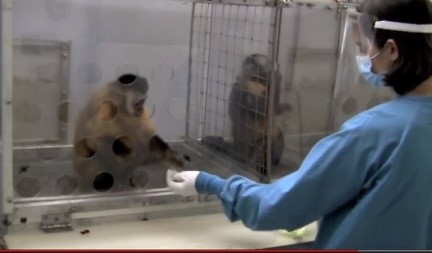Article-Detail

Perception is Reality
“Our minds influence the key activity of the brain, which then influences everything; perception, cognition, thoughts and feelings, personal relationships; they're all a projection of you.”
- Deepak Chopra
Growing up in my mother would always tell me to, “Stop worrying about what other people think”. In a conversation with my wife one morning I brought up this expression to which she added, “Stop worrying about what other people are doing”. We were discussing the topic of workplace perception because, just like all workplaces, people are watching one another and comparing work, accomplishment, recognition and reputation. From the information they observe, conclusions are drawn and a perception of their treatment is developed. Psychologists call this phenomenon social perception or person perception which is described as the study of how people form impressions of and make inferences about other people as sovereign personalities. Does the person next to you do as much as you do? Do they do as much important work as you? Are they celebrated in memos, staff meetings or by colleagues disproportionately than you? Does their reputation afford them perks that you should have? These questions and many more are asked and discussed on a daily basis in offices and workplaces. The conclusions of these discussions, while highly subjective and biased, have consequences that determine morale and daily performance.
People are constantly looking and comparing the treatment of others as a gauge of their value to their leaders and the organization. Their social status on the team must be protected at all times. When someone of lower social status, either perceived or real, is celebrated while higher social status employees are made to feel shunned, there will be a real reaction. Dutch Primatologist and Emory University Professor, Frans de Waal's research on primates illustrates the point brilliantly. He has two capuchin monkeys in adjacent cages. A researcher trains them to complete the simple task of picking up a rock and handing it to the researcher. In return they are rewarded with a snack, one is rewarded with a cucumber slice, and the other is rewarded with a grape. Both monkeys are aware of the value of each snack, the cucumber is nice but isn’t nearly as enjoyable as a sweet juicy grape. It doesn’t take long for one monkey to notice that for completing the same task the other monkey is rewarded with a grape while he is rewarded with a cucumber. The reaction? The monkey throws the cucumber back at the researcher and begins pounding the table and shaking his cage. In the same way, people who notice that they are not rewarded fairly as compared to others actually experience physiological distress. That distress is only made worse by the inevitable conversations around the office about the disparate treatment in the office. The result of this distress and the compounded effect of constant reminders is the throwing the metaphorical cucumbers back at those in charge.
Because the social hierarchy is largely a creation of the imaginations of biased and uninformed individuals, it is unwise to participate in that conversation or activity. Because the behavior of the group has a tangible impact on office morale and production, it is necessary to go out of your way to make sure your people are compensated for the work they do. Compensating people does not just refer to money, it can include time, conferences, materials and gratitude. People appreciate these other forms of compensation just as much, if not more, than financial compensation alone. Former AVIS CEO and Author, Robert Townsend points to gratitude as the most neglected form of compensation. It’s as simple as making your people feel valued and important. They will always be watching and comparing but they will be less critical of recognition for others if they are getting their due. If you are constantly letting people know you recognize their contribution to the organization they will spend less time worrying about what others are saying and doing and focus more of their energy on producing.
The phenomenon of peering over the fence and making comparisons is a practice as old as time as is the desire to climb the social ladder. The instinct to believe you are better or more important than you actually are drives you to inflate your value as well as the expectation that you deserve more than your colleagues. This activity is generally associated with office politics, the consequence of this ubiquitous behavior can have a detrimental effect on daily life if not addressed so make it part of your daily activity to celebrate everyone. We are all mammals, just like the capuchin monkeys, we just want to be treated justly so give grapes to everyone and watch your team SOAR!
https://en.wikipedia.org/wiki/Social_perception
https://en.wikipedia.org/wiki/Frans_de_Waal
Capuchin Monkeys, Fairness Experiment
https://www.amazon.com/Up-Organization-Robert-Townsend/dp/0449205053
William A. Brown
December 9, 2018





Comments : afrsdfdsfdsf
12-12-2018